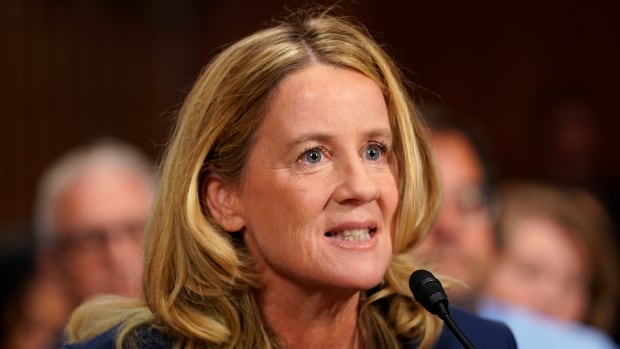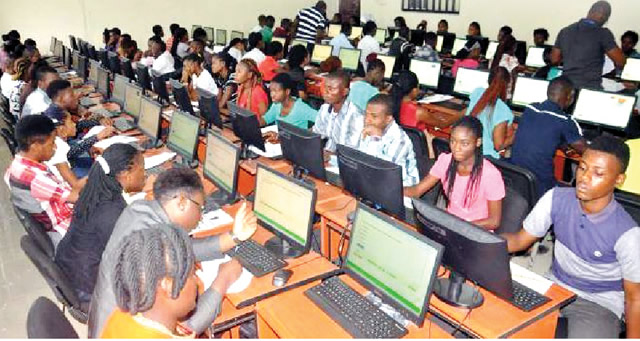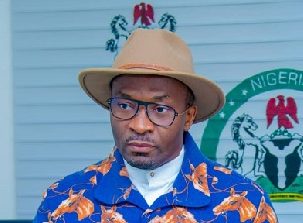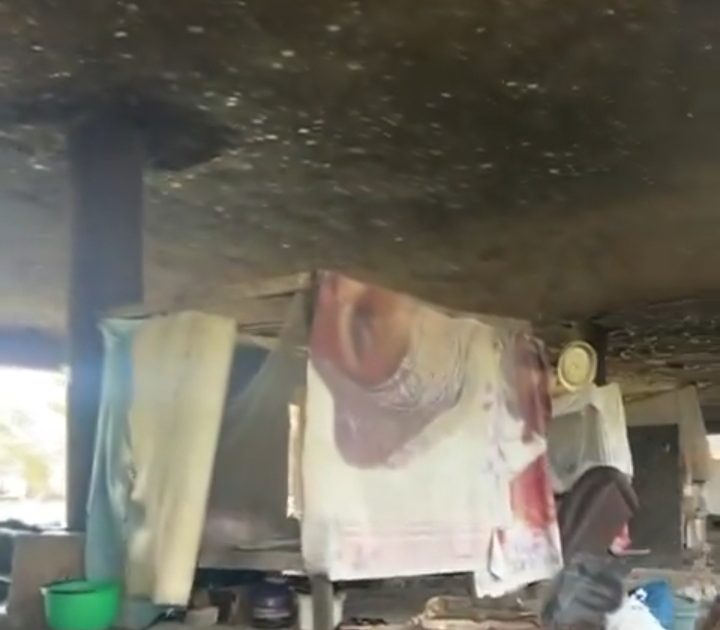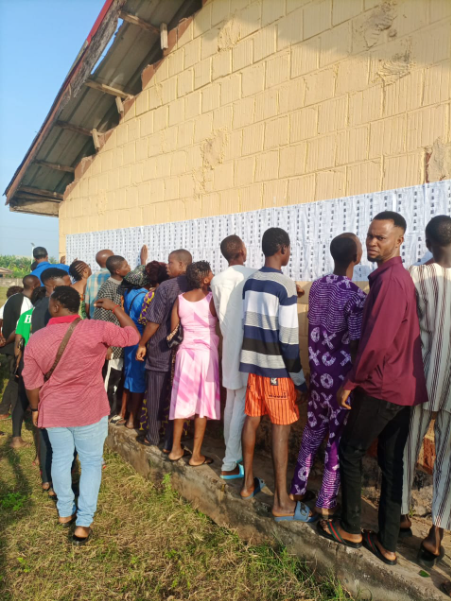The Sunday Magazine20:34Christine Blasey Ford’s testimony against Kavanaugh made her a target. But she would do it again
Christine Blasey Ford says it was her civic duty to testify against Brett Kavanaugh in 2018. And if she could go back in time, she would do it all over again.
Ford, a California psychology professor, was propelled into the public sphere more than five years ago when she stood in front of the U.S. Senate judiciary committee and testified that Kavanaugh, then a U.S. Supreme Court nominee, had sexually assaulted her when they were both teenagers.
Kavanaugh vehemently denied the allegations, and ultimately, secured his position as a justice on the nation’s highest court. Ford, meanwhile, became a target for death threats and smear campaigns — something that’s taken her years to recover from.
Nevertheless, she says: “I would absolutely do it again.”
“I still have the same sense of commitment to the United States and the same sense of civic duty,” she said. “I’m proud of what I did, and I certainly paid a cost, and it was really difficult. I continue to pay a little bit for it — and I’m willing to pay for it,” Ford told The Sunday Magazine host Piya Chattopadhyay in a Canadian exclusive interview.
Ford describes her decision to testify, and the fallout she experienced afterwards, in her memoir One Way Back, which hit shelves on Thursday.
Standing in front of an oncoming train
Before she was known to the public as Christine Blasey Ford, the woman who accused Kavanaugh of sexual assault, she was known to her loved ones as Chrissy Blasey, a psychologist, mother and avid surfer.
“I had a pretty good life. I was a university professor, working hard from August until June, and then spending nine weeks every summer on the beach and in the ocean,” she said.
It was on the beach that she first told her friends that a man being considered for the U.S. Supreme Court bench had once assaulted her, and that she intended to do something about it.
“I felt that it was my civic duty to share that information as quickly as possible,” she said.

Her friends, she says, tried to talk her out of it. But she was adamant. She’d grown up in Washington, D.C., she said, and felt a strong sense of patriotism and reverence for the court, which she says is “where we send the best of the best.”
So she wrote a letter to her representative, Sen. Dianne Feinstein, and shared an anonymous tip with the Washington Post.
Everyone she told, she says, gave her the same advice: Lawyer up.
“I didn’t really understand why I needed lawyers. I hadn’t done anything wrong, and I simply wanted to relay information that I thought was useful, to try to help the people who were making the decision,” she said.
But that’s not how it played out. Her identity was leaked to the media, forcing her to go public with her story. She was then called upon to testify at a public hearing on the allegations.
“I thought this was all going to play out privately, and that maybe there would be a private meeting with senators or officials who were considering the vote on him,” she said.
“It wasn’t terrifying until I knew that it was going to be a public situation.”
‘No turning back’
She still remembers that day, Sept. 27, 2018, when she stood in front of U.S. lawmakers and TV cameras and shared her story.
“I remember walking down the hallway and knowing there was no turning back, and I was just trying to make it to the chair,” she said.
She was in awe, she said, and frightened — but she took it one question at a time.
“I just, I guess, leaned on my sense of patriotism, my sense of doing the right thing, the way I’d been raised and that I was telling the truth,” she said.
“The chips were going to fall where they were going to fall, and I had to detach from the outcome because that was just too stressful to think about.”
Christine Blasey Ford alleges that a drunken, 17-year-old Brett Kavanaugh forced her down on a bed, groped her and tried to take off her clothes during a high school gathering in the summer of 1982. She was 15 at the time.
After she testified, it was Kavanaugh’s turn to speak. In an intense and emotional speech, he maintained he had “never sexually assaulted anyone — not in high school, not in college, not ever” and accused Ford of “totally and permanently” destroying his family and his reputation.
It was not, Ford says, entirely unexpected.
From her work in psychology, she knows this as a deflection tactic referred to as DARVO — deny, attack, and reverse victim and offender.
“It becomes: I ruined his life. So I become the offender and he becomes the victim. And it’s just a playbook that’s used so often that it’s very predictable,” she said.
CBC reached out to Kavanaugh, who declined to comment for this story.

The next few months, Ford says, were intense.
“My family, we were living away from home. It wasn’t safe to be at home, so we were gone for three and a half months and living with security detail,” she said.
“But on the other hand, I had this outpouring of support from all 50 states, and 42 countries — handwritten letters that were just so powerful and heartwarming and heartbreaking.”
Since the day of her testimony, Ford says she’s received more than 100,000 handwritten letters of support — including several boxes from Canada. Many are from people who told her they experienced sexual assault themselves.
“They are how I got through — and how my family got through — the ordeal was this incredible, outpouring of support from all over the country and all over the world. I’m really grateful,” she said.

That, she says, is ultimately why she stands by her decision despite everything she’s been through, and why she decided to write a memoir.
“It’s a huge thank you [to the letter writers],” she said.
“I wish I could write to them individually. I started and tried, and I wrote back to all the people who are over 90 years of age, and that took me so long. And I thought even if I spend every day doing this, I won’t necessarily be able to get to everyone.
“So this is my first thank you to them. And hopefully there’ll be other ways that I can thank them as well.”
